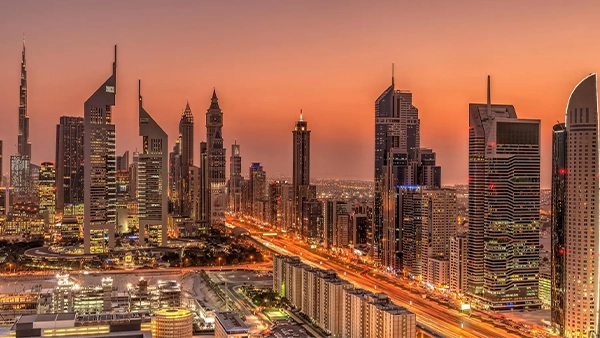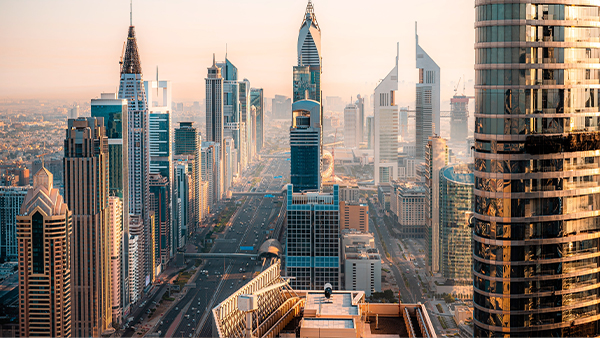Owning property in Dubai’s dynamic and luxurious cityscape is a dream for professionals, investors, and families from around the world.
In 2025, this dream feels more attainable than ever, thanks to a thriving property market backed by strong infrastructure and government incentives.
But as demand grows and developments across the UAE’s most desirable neighborhoods continue to rise, one question stands out: What minimum salary makes property ownership in Dubai a realistic goal?
This comprehensive guide explores the income requirements, mortgage rules, and financial considerations necessary for purchasing property in Dubai today.
Why is Property in Dubai in High Demand?
As of early 2025, the city’s real estate market shows healthy momentum, with over AED 761 billion in property transactions recorded in the previous year.
The introduction of long-term Golden Visas for property owners, freehold zones, and flexible developer payment plans has further increased accessibility.
Moreover, the high rental yields ranging from six to eight percent annually in some of Dubai’s most desirable neighborhoods continue to attract interest from new and seasoned investors.
For residents and international buyers, properties for sale in Dubai appeal to their interests in personal use and rental income.
General Thresholds when Buying Property in Dubai
It has been well-established that the UAE real estate market continues to attract investors from across the world.
And purchasing property in Dubai involves financing through a home loan unless the transaction is made in cash.
For residents and expats applying for a mortgage, lenders not only assess salary but also job stability, company profile, debt obligations, and credit history. Sometimes, banks also require life insurance for buyers seeking a mortgage.
To ensure a smoother approval process, individuals are advised to maintain a good credit score and avoid excessive liabilities.
But how much does one need to earn to invest in or purchase property in Dubai with financial aid, mortgage options, and loans?
Here’s the simplified outline:
-
Down Payments:
The standard down payment for expats is 20 percent of the property value, while UAE nationals are eligible to pay as low as 15 percent.
-
Mortgage Eligibility:
Most banks require a minimum monthly salary of AED 15,000 (approx. USD 4,080) to be eligible for a mortgage in Dubai.
-
Mortgage Registration Fees:
For any bank, mortgaging requires a registration fee valued at 0.25% of the mortgage value and AED 290 for administration.
-
Loan-to-Value Ratio:
A key metric used by lenders to assess the risk associated with a loan, the LTV ratio for properties under AED 5 million is 80% for expats and up to 85% for UAE nationals.
-
Interest Rates:
In 2025, interest rates for home loans in the UAE range between 4% and 5%, with repayment periods stretching up to 25 years.
Ideally, one’s monthly mortgage (EMI) should not exceed 25% – 50% of their overall income. This depends on the bank and loan structure, but it is recommended for steady financial planning.
The UAE, without a doubt, has some of the most lucrative policies to maximize investment benefits from real estate.
However, investors and buyers are required to pay certain additional fees when purchasing properties.
Upfront Costs Beyond Downpayments
When purchasing properties for sale in Dubai, buyers must account for certain costs regardless of whether the property is bought with cash or through a mortgage.
- The Dubai Land Department (DLD) charges a 4% registration fee on the property value.
- Buyers should also budget title deed issuance fees of AED 520 and an AED 580 admin fee charged by DLD.
- Additionally, real estate agency commissions start at 2% of the sale price with a 5% VAT.
In total, buyers should expect upfront costs between 6% to 8% of the property value, in addition to the down payment.
Therefore, having sufficient savings beyond the down payment is critical when planning a property purchase in Dubai.
Property Types and Associated Salary Expectations
In a cityscape as vibrant and luxurious as Dubai’s, purchasing property might seem like a far-fetched dream.
UAE’s investor-friendly policies and welcoming real estate market make it attainable, offering luxurious lifestyles for every budget.
One of the most searched real estate categories involves apartments in Dubai. These units cater to a wide demographic, from single professionals to families seeking studio apartments or 1-, 2-, and 3-bedroom options in established communities.
Apartments also present strong rental returns, making them popular choices among investors looking for passive income.
Here is a curated list of types of properties in some of Dubai’s popular residential communities, with salary ranges for each:
- Entry-level buyers, individuals, couples, or investors looking to diversify their portfolios prefer investing in smaller apartments in Dubai.
Danube’s studios or one-bedroom units in areas like Dubai Science Park, Al Warsan, and Dubai Silicon Oasis start as low as AED 450,000 to AED 700,000.
For these properties, a salary between AED 10,000 to AED 15,000 per month is sufficient, assuming the buyer meets other lending criteria.
- Mid-range properties, including larger apartments in Jumeirah Village Circle, Jumeirah Village Triangle, and Jumeirah Lake Towers in Dubai Marina, start from AED 950,000 onwards.
Buying in this range would require a salary between AED 20,000 to AED 30,000 per month to comfortably cover loan repayments and maintain financial stability.
- For premium options in Business Bay, Downtown Dubai, property prices can range from AED 2 million to well over AED 10 million.
Acquiring such properties through financing would require a significantly higher income ranging from AED 35,000 to AED 60,000 per month or more, depending on the size of the down payment and loan structure.
Buying Property Without a Mortgage
Not all buyers rely on financing when acquiring property in Dubai. Many investors, particularly international buyers, opt for all-cash purchases.
Cash-based property purchases eliminate the need for salary verification, loan approvals, and interest payments. However, upfront costs such as land department fees, agent commissions, and developer administrative charges still apply.
Cash buyers enjoy greater flexibility during negotiations and benefit from quicker transfer processes.
How is Danube Properties Reshaping Real Estate Ownership
Danube Properties has a strong presence in Dubai’s competitive real estate market.
Known for high-quality homes at attractive price points, Danube’s developments focus on innovative architecture, lifestyle-driven amenities, and strategic locations near schools, metro stations, and commercial hubs.
With a unique approach that prioritizes affordability, Danube offers flexible post-handover payment plans, allowing buyers to pay in monthly installments after moving in, significantly reducing the burden associated with property purchase in Dubai.
Our payment structures include:
- 10–20% down payment
- 1% monthly installments
- Up to 6 years of post-handover payment plans
Danube’s exceptionally flexible payment plans and down payment policies make it a popular developer among first-time buyers, salaried professionals, and investors.
Conclusion
Purchasing property in Dubai in 2025 is more than just choosing the right location or layout; it begins with a clear understanding of the required salary, financial commitments, and long-term affordability.
While a minimum salary of AED 15,000 per month serves as a basic benchmark for mortgage approval, with the right salary, a clear plan, and the right partner, buying property in Dubai can be more achievable than ever.
Thanks to the UAE’s investor-friendly policies, tax-free income, and developers like Danube Properties reimagining luxury that fits every budget, Dubai remains an attractive, stable, and investor-friendly market, offering long-term rewards for those entering the property landscape in 2025.








